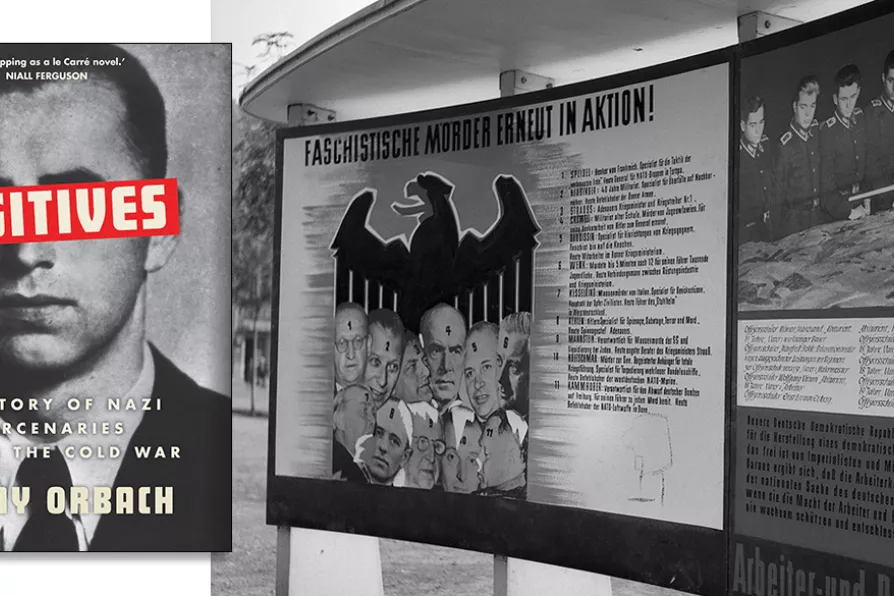JOHN GREEN, MARIA DUARTE and ANGUS REID review Fukushima: A Nuclear Nightmare, Man on the Run, If I Had Legs I’d Kick You, and Cold Storage

 IDEOLOGICAL CLARITY: East German propaganda against former Nazis, 1957. Reinhard Gehlen (1902 - 1979) is listed at number 8.
[Manfred Niermann/CC ]
IDEOLOGICAL CLARITY: East German propaganda against former Nazis, 1957. Reinhard Gehlen (1902 - 1979) is listed at number 8.
[Manfred Niermann/CC ]
Fugitives – A History of Nazi Mercenaries During the Cold War
Danny Orbach, Hurst, £14.99
BEFORE the second world war was over, the US and its Western allies were preparing for the next war against the Soviet Union. For this project, collaboration with former Nazis became an essential building block; old enemies became friends.
As the author writes, “Although the victorious allies had vowed to hunt the Nazis down ‘to the ends of the earth’, in practice no more than a handful of Nazi leaders were tried before the international tribunal at Nuremburg. Plans for a thorough denazification
of West German society died with a whimper.”
In this highly informative book, Danny Orbach, a Professor at the Hebrew University in Jerusalem, gives us an enormous amount of detailed background about the way thousands of top Nazis escaped justice and exposes the hypocrisy of the West.
Orbach is no left-wing commentator and is avowedly anti-communist. He views this period of history from an Israeli perspective, but this hardly detracts from the factual information he provides. He was given extensive access to the secret service files held by the USA, Germany and Mossad, but makes no reference to any East German or Soviet sources. This is a serious omission, as the GDR, in particular, waged a lengthy campaign exposing the reintegration of Nazis into West Germany society, and amassed a large data base of former Nazis and their crimes.

The obfuscation of Nazism’s capitalist roots has seen imperialism redeploy fascism again and again — from the killing fields of Guatemala to the war in Ukraine, writes PAWEL WARGAN

The pivotal role of the Red Army and sacrifices of the Russian people in the defeat of Nazi Germany must never be forgotten, writes DR DYLAN MURPHY











